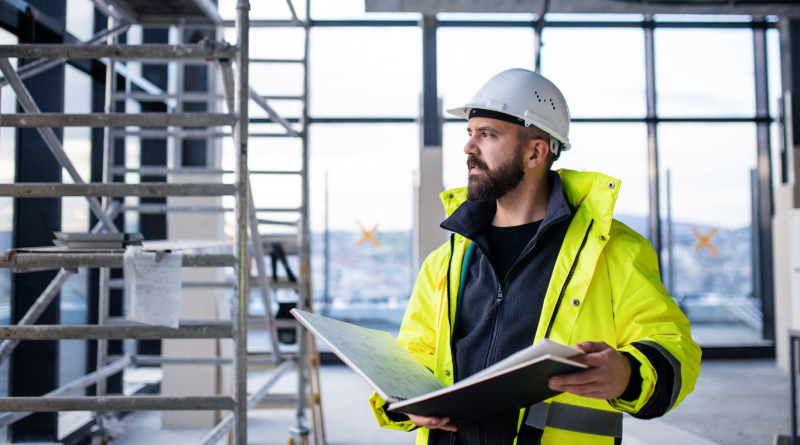What Does a Construction Manager Do? 6 Core Responsibilities Explained
Construction managers are the backbone of every successful building project. Their role spans every phase of a construction job, from concept to completion. But what does a construction manager do day to day?
We outline the top six duties within the field of construction management and how construction managers ensure safety, quality, and efficiency on every job site.
1. Project Planning and Scheduling
Project planning forms the foundation of successful construction management. Construction managers start by analyzing the project’s scope, budget, and deadline. They break the work into phases and build detailed schedules to guide the process.
Using tools like Gantt charts, CPM (Critical Path Method), and BIM (Building Information Modeling), construction managers create realistic timelines. They assign tasks to subcontractors, set procurement deadlines, and ensure sequential workflows.
A McKinsey study shows that 98% of megaprojects suffer cost or schedule overruns; strong planning reduces this risk. Construction managers mitigate delays by anticipating bottlenecks early.
Their ability to align planning with real-world logistics is vital. Planning isn’t static. As construction progresses, managers adjust schedules to reflect ground realities while keeping stakeholders informed. In essence, construction managers serve as master schedulers who keep everything on track.
2. Cost Management and Budgeting
What does a construction manager do when costs start to climb? They act fast. Cost control is critical in construction management.
Before the first shovel hits the dirt, construction managers prepare comprehensive budgets. They factor in labor, materials, permits, and contingencies. Every penny must be tracked.
According to FMI Corp., poor cost estimation is a top reason for project failure. Construction managers monitor expenses using project management software and generate reports to keep teams accountable. They also negotiate with vendors and subcontractors to lock in cost-effective solutions.
Change orders can derail budgets. A good construction manager reviews all changes against the initial scope and cost impact. Their job is to forecast expenses and minimize budget overruns. In construction management, financial discipline defines project success.
3. Quality Control and Assurance
Delivering a high-quality build is a non-negotiable in construction management. Construction managers enforce quality standards through rigorous inspections and checklists.
They review plans and specs, verify that materials meet required standards, and ensure skilled labor executes the work correctly. Construction managers must also stay up to date with the latest codes and certifications.
Poor-quality work leads to rework, costly and time-consuming. A study from the Construction Industry Institute revealed that rework can cost up to 5% of a project’s total budget.
Construction managers set up quality assurance frameworks from the start. They work with QA/QC engineers, conduct regular audits, and maintain documentation that proves compliance. Construction management isn’t just about deadlines, it’s about delivering lasting value.
4. Risk Management
Construction projects are filled with uncertainty. From weather delays to supply chain issues and labor shortages, risks can derail timelines and inflate costs.
Construction managers take a proactive approach to risk. They begin by conducting a detailed risk assessment in the planning stage. Each potential hazard is assigned a likelihood and impact score.
From there, they create mitigation plans. These might include alternate suppliers, backup crews, or accelerated timelines. Construction managers also ensure all insurance and legal requirements are in place.
The World Economic Forum estimates that construction projects lose $1.6 trillion annually to mismanaged risk. Skilled construction managers identify vulnerabilities and protect project investments.
5. Safety and Compliance Oversight
In construction management, safety isn’t optional, it’s mandatory. Construction managers enforce strict safety protocols to prevent workplace injuries and fatalities.
They perform site audits, train staff on safety procedures, and make sure all equipment meets regulatory standards. Construction managers also ensure compliance with OSHA regulations, local laws, and environmental codes.
According to the U.S. Bureau of Labor Statistics, construction accounts for nearly 20% of workplace deaths. That’s why safety oversight is one of the most important duties in construction management.
They also manage documentation like incident reports, permits, and inspection results. When compliance is handled correctly, it reduces liability and protects both people and profits.
6. Communication and Coordination
What does a construction manager do all day? A lot of talking. Construction managers are the central point of contact across the entire project lifecycle.
They lead meetings, send updates, and coordinate with architects, engineers, vendors, and clients. Construction managers turn project plans into reality by aligning multiple teams toward one vision.
Poor communication leads to scope creep and costly misunderstandings. A report by Project Management Institute (PMI) found that ineffective communication leads to project failure one-third of the time.
Construction managers act as interpreters, translating technical jargon into clear directions. Their ability to listen, inform, and align teams is fundamental to construction management success.
Construction managers juggle many responsibilities, but each role is essential. They plan and schedule, control costs, enforce quality, manage risk, ensure safety, and keep everyone on the same page. When you ask “What does a construction manager do?”, the answer is simple: everything that keeps a construction project on time, on budget, and built right.
